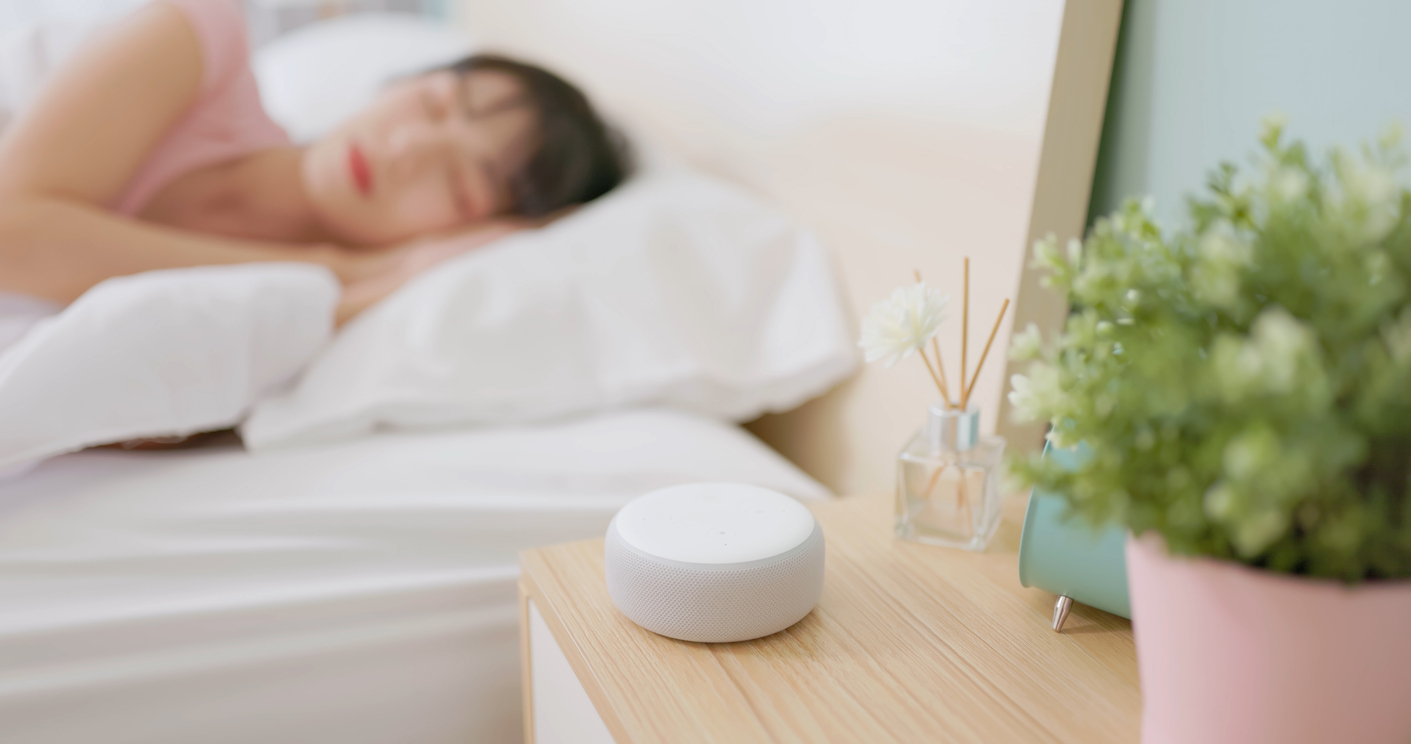Noise-induced hearing loss (NIHL) occurs when prolonged exposure to loud sounds damages the hair cells in the inner ear, leading to permanent hearing damage. Recent research shows sound machines, especially those used for infant sleep, have the potential to damage hearing when not used properly. Here’s what to know.
How Noise-Induced Hearing Loss Happens

NIHL can develop after repeated exposure to sounds at or above 85 dB. The risk increases with the higher the volume of the noise and the amount of time exposed to the noise. Hair cells in the cochlea, which help transmit sound to the brain, can become permanently damaged due to these high noise levels, causing the hearing loss.
Some common sources of noise that can contribute to NIHL include:
- Music played at high volume through earbuds or headphones
- Power tools like lawnmowers or leaf blowers
- Sporting events or concerts, like those at Bangor Amphitheater
Sound Machines and Hearing Risk in Infants
Sound machines, commonly used to help infants sleep, can be beneficial when used at low volumes. However, if these devices are too loud or used for extended periods, they may contribute to hearing damage in young children whose ears are still developing. Many sound machines can exceed 50 dB, and if placed close to an infant’s crib, they may reach levels above 85 dB, which is well within the range of potentially causing harm.
Sound machines can be used safely when following a few recommendations:
- Place the machine at least seven feet away from the child.
- Set the volume to the lowest level that effectively works and only use sound machines with volume control.
- Use a timer to ensure it doesn’t run all night and limit usage to less than eight hours, if possible.
By being mindful of how sound machines are used, especially for infants, you can help protect your child’s hearing and reduce the risk of long-term damage. Always consult a hearing specialist if you’re concerned about noise exposure and hearing health.
Newborns are monitored for hearing loss at birth. However, if you have concerns about your child’s hearing or the hearing of another loved one, schedule a hearing consultation today by contacting Bangor Audiology.